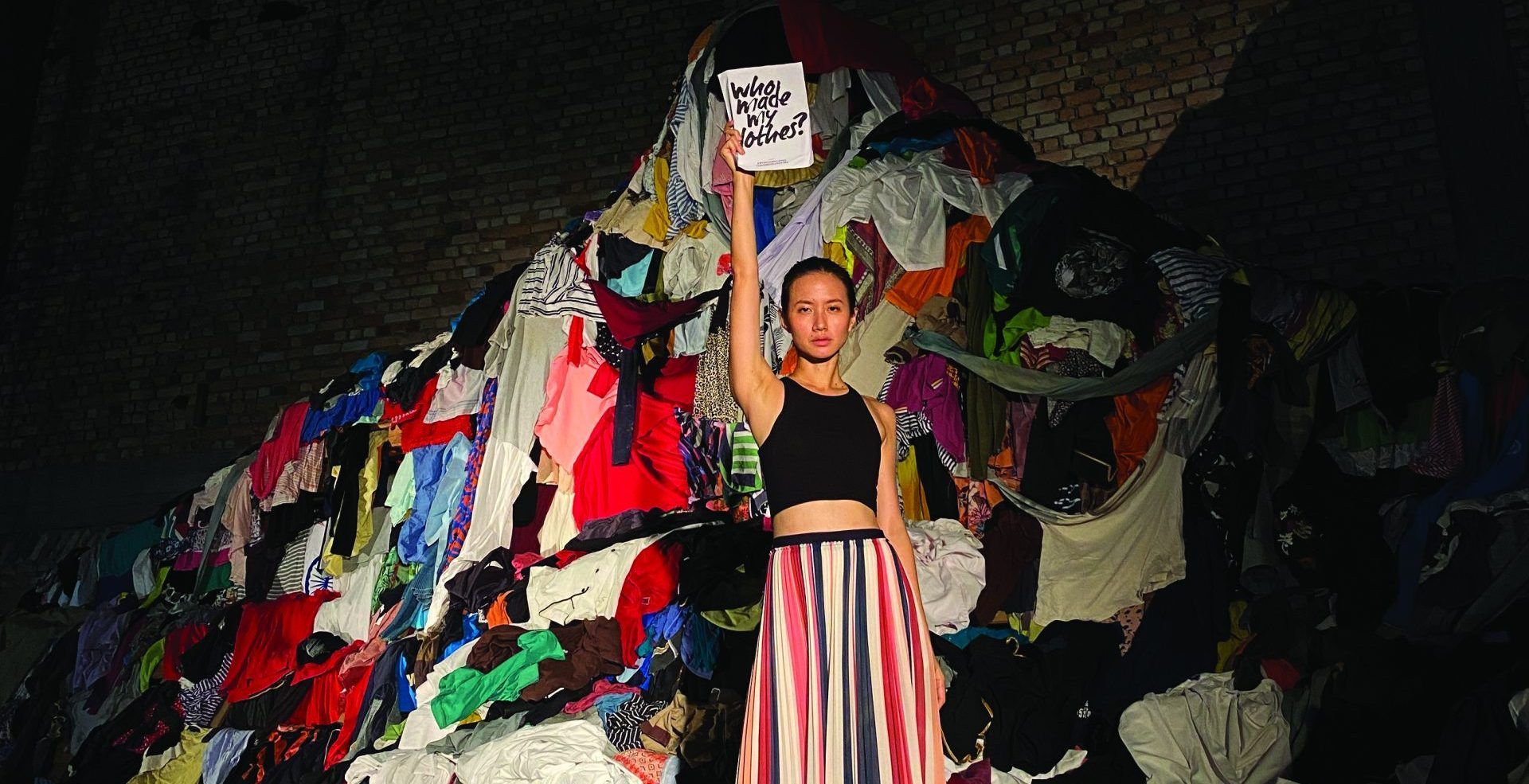The fashion industry stands at a pivotal crossroad as the world becomes increasingly aware of its environmental footprint. Concerns over climate change and sustainability continue to escalate, so the call for eco-conscious fashion has never been more urgent.
We get to the ‘root’ of the issue in an exclusive interview with fashion influencer, Melissa Tan, the visionary eco-champion who led the Fashion Revolution Week Malaysia 2024—a platform for community engagement that offers you the opportunity to embrace conscious consumption.
What inspired you to go down this eco- conscious and sustainability route?
Like every activist, there was a former dark past. I was a raging shopaholic that sacrificed years of my life, trading valuable experiences for more time in the shopping malls. After accidentally falling into minimalism and coming closer to my environmental values, I realised that the answer was not more, but less.
So, I started living from a suitcase, trimmed down to a minimalist wardrobe, and then saw the drug slowly wash away as I cut off the ties from consumerism. I then fell into zero waste living. Going down that rabbit hole and it changed my relationship with myself and my image.
What do you believe are the biggest barriers to implementing innovative sustainable practices in fashion?
The culture of overconsumption. So, the barrier is the mental programming we already have. That’s why it’s so easy to market to people. That’s why it’s so easy to get them to continue to buy and buy, not knowing why they’re doing it. So, the thing that I like to do is the minimalism wardrobe—curating a capsule wardrobe for yourself, understanding your style, noticing the pieces that you’re taking in, and why you’re taking them in. Focusing on the stories and the experiences for yourself.
How do you use your platform as a fashion influencer to raise awareness about environmental awareness?
I use my platform to show people that this way is sexier. It’s not just sexier physically, but it’s, you know, healthier. It’s more in tune. It connects me to other people more as well, because fashion can be a connector. It’s about how we can all dress better together and take care of the people in the fashion industry much better. So, I use my platform to make it relatable— how sustainability in fashion can look so good. It’s in your creativity and resourcefulness.
How was this year’s annual Fashion Revolution Week hosted differently?
Fashion Revolution Week this year was in conjunction with Green Day Out, an event that celebrates community at Gaya HQ, a beautiful space that is 100 per cent upcycled, zero waste built for the community to foster sustainability in our culture. This year’s Fashion Revolution Week was more intimate; we invited people to reinvent their relationship with clothing by sharing instead of consuming, offering a variety of sizes.
What advice would you give to emerging sustainable fashion influencers who want to advocate the same things?
Go beyond the surface. There is no such thing in our current edition as sustainable fashion. No piece can solve sustainability, so buying another thing because they told you it was sustainable is never going to solve anything. Invite your audience and wherever your circle of influence is—whether it’s your friends, whether it’s your family—that tells the story of how you put thought into where all these pieces come from. Who suffered for this, or who benefited from this? Invite people into that conversation and into the thought process, so that we don’t keep putting band aids on top of gaping wounds.

